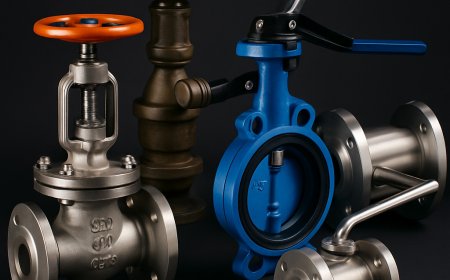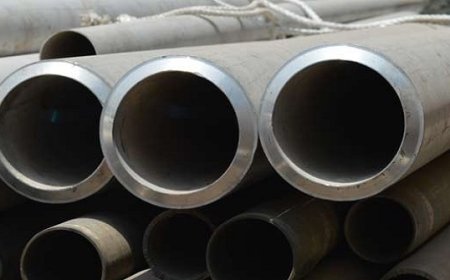Kerosene Additives That Reduce Nozzle Blockage
Avoid heating system failures this winter. Discover the top kerosene additives that reduce nozzle blockage and improve performance for UK homes and off-grid systems.

For thousands of homes and farms across the United Kingdom, kerosene remains the go-to fuel for heating, cooking, and even powering some off-grid systems. But ask any experienced homeowner or engineer, and theyll tell you: kerosene isnt without its quirks. Chief among them? Nozzle blockage.
This pesky issue can stop your boiler or range cooker dead in its tracks, particularly during the coldest months when you need them most. The good news? A simple kerosene additive can make all the differenceif you choose the right one.
This article takes you through everything you need to know about kerosene additives that reduce nozzle blockage, including what causes the problem, how these additives work, and how to select the best product for your needs in the UK.
What Causes Nozzle Blockage in Kerosene Heating Systems?
Before we dive into solutions, it's important to understand the root of the problem. Nozzle blockage isnt a random occurrenceits a consequence of several interacting factors:
-
Fuel degradation: Kerosene breaks down over time, especially if left unused in outdoor tanks exposed to moisture and temperature changes. This creates gums and varnishes that clog burner nozzles.
-
Sludge buildup: As kerosene ages, it forms sediments that settle at the bottom of the tank. When stirred up (say, during a refill), these can get sucked into the burner line and clog the nozzle.
-
Water contamination: Condensation inside storage tanks introduces water into the fuel system. This not only encourages microbial growth (fuel bugs) but also contributes to corrosion and sludge.
-
Incomplete combustion residues: Burners that dont run efficiently leave behind carbon and soot, narrowing the nozzle orifice and affecting fuel spray.
Why Nozzle Blockage Is a Bigger Problem in the UK
Across the UK, kerosene is especially common in rural and remote areas where properties arent connected to the gas grid. Homes in parts of Scotland, Wales, Northern Ireland, and the North of England often rely entirely on heating oil, especially during long winters.
Due to damp and fluctuating temperatures, UK storage tanks are particularly prone to condensation and microbial contamination. With colder months increasing fuel use, the risk of burner shutdowns from nozzle blockage is at its highest when you need heat the most.
This is why so many UK users are turning to kerosene additives as a proactive maintenance strategy.
What Are Kerosene Additivesand How Do They Help?
Kerosene additives are specially formulated chemical compounds that are mixed into your heating oil. Their goal is to stabilise the fuel, clean internal components, and prevent performance issues like nozzle blockage.
Key Functions of Anti-Nozzle-Blockage Additives:
-
Disperse sludge and sediment so they dont accumulate or clog lines.
-
Prevent the formation of gums and varnishes as the fuel ages.
-
Clean the burner nozzle by dissolving existing deposits.
-
Suppress microbial growth caused by water contamination.
-
Enhance combustion for cleaner burning and reduced soot.
Think of these additives as a detox for your heating oil system. They keep your burner running clean and efficientno more soot, no more shutdowns, no more costly engineer visits.
Top-Rated Kerosene Additives for UK Households
If you're shopping for a nozzle-blockage solution, here are a few additives trusted across the UK that deliver real results:
1. Exocet Heating Oil Additive
-
A premium, multi-functional additive ideal for both domestic boilers and cookers.
-
Contains anti-sludge, stabilisers, and combustion improvers.
-
Helps prevent carbon buildup and nozzle fouling.
2. Hot 4 in 1 Kerosene Additive
-
Combines anti-freeze, biocide, and system cleaner in one product.
-
Excellent for preventing water-related contamination and sludge.
-
Ideal for tanks exposed to the British winter.
3. AGA Kerosene Additive
-
Tailored for vaporising cookers like AGA and Rayburn units.
-
Improves burning characteristics and stops carbon crust from forming on the burner mesh.
-
A favourite in rural properties with older cooker-boilers.
4. Premium Heating Oil Conditioner (by Fuel Additive Shop UK)
-
Designed specifically for modern condensing boilers.
-
Reduces nozzle coking, improves ignition, and helps fuel stay fresher longer.
How and When to Use Kerosene Additives
Timing and technique matter. Follow these simple tips to ensure you get the best out of your additive:
?? Add Before Delivery
Pour the additive into the tank before your fuel delivery so that it mixes thoroughly as the kerosene flows in.
?? Follow Correct Dosage
Overuse wont necessarily help and may even interfere with combustion. Stick to the manufacturers guidelinesusually just a few millilitres per 1,000 litres.
?? Regular Use Pays Off
One dose will help, but routine use keeps your system clean year-round. For homes that burn kerosene all winter, consider using additives every time you refill.
Benefits That Go Beyond Just Preventing Nozzle Blockage
While the primary reason to use these additives is to reduce nozzle blockage, you also benefit from:
-
Improved energy efficiency (less fuel needed to heat your home)
-
Reduced boiler maintenance (fewer emergency callouts and part replacements)
-
Cleaner emissions (less soot and lower carbon output)
-
Longer appliance life (your burner and boiler stay in top condition)
Final Thoughts: Small Additive, Big Impact
In a world where heating costs are rising and system reliability is critical, using kerosene additives that reduce nozzle blockage is a smart, preventative stepespecially in the UK where weather and storage conditions create the perfect storm for fuel-related issues.
Whether you're maintaining a countryside cottage in Cumbria or fuelling an off-grid home in rural Wales, additives are a low-cost insurance policy against fuel system failure. So next time you top up your heating oil, dont forget the additiveit could save you time, money, and cold winter headaches.























